Flashback.
I remember sitting in the back of a 925 as it pulled away from the MARFOR camp in Mogadishu, Somalia. It was a nice day. It was hot as usual, but the sky was clear and the two women who had been doing the laundry for our unit -who had sat out on the open ground for months with plastic buckets and soap - they stood silently by.
Their clothes a beautiful collision of colors stood out starkly against the charred concrete pad and the backdrop of hundreds of uniformed U.S. troops. Those were two people I knew well; that I’d spoken to many times during the operation. I watched them until I could see them no more, standing on the pavement as we left.
I knew I’d never see them again. But there was something else which brought all that to mind – something about ancient history; something Roman – maybe it was part of a dream I had.
Another flashback - there was a French photographer who had shot so many photos of me in different places around the country that he came up to me one day and asked who I was.
“It is just that the French people are beginning to ask who you are,” he said. “Somehow you are always where I am taking photos.” I don’t remember what it was I told him, but I remember we laughed and he said something in French and I responded to his surprise. He was a nice guy, but I never expected to see him ever again.
But I did.
A week later, trying to re-adjust to life, I was in an office inside the 49th Fighter Wing Headquarters. I picked up a national newspaper and there was a photo of my French friend being loaded, dead, into the back of a truck. His story ended there and I had never even asked his name.
And of course, there was the incident most know of as Blackhawk Down. The incident was a disaster. We had already pulled our main forces out and what remained was a Quick Reaction Force (QRF). In that vacuum, the orders were given to capture General Aideed. And that is a whole different story.
But the results of it – that’s important to consider. Because we were pulling out of Africa when the whole thing happened. The biggest lesson we can learn from the success of our troops in Iraq, it is that we can change things for the better. It is renewed proof that we can triumph through immense personal sacrifice and material cost – and that freedom can be won – even for others, half a world away.
Our leadership in the White House, Bill Clinton at the time, evidently had forgotten that lesson, which has been taught by history so many times; freedom can be won.
But politics sent those helicopters into a piece of Hell and terrorists shot them down. They accomplished that, using cell phones to coordinate the attacks and black clouds of smoke to obscure the movement of large crowds of aggressors on the ground. They knew the territory better than those troops flying in, and they were prepared and rehearsed.
I watched the images in horror on my television screen in my living room. We had been pulled out and sent home – and if we’d been there, it either wouldn’t ever had happened, or there would have been people there who knew the layout of that city as well as their own hometown. People like myself, and my buddies, who had driven those roads and back-alleys thousands of times – we would have been there.
But we weren’t there because of politics. We weren’t there because of stupid decisions. We weren’t there because our country’s leadership decided the whole operation was like a dead albatross hanging around their neck. They needed to cut it all loose.
Now our new president and Nobel Peace Prize winner, who has done little more than community organizing, is vacillating. Should he do what his generals on the ground are asking – or should he ignore their recommendations and go with his own notions? I wonder if he’s talked to Bill Clinton?
I can’t help but think of what would have happened if our unit had still been there when those Blackhawks went down. I suspect my commander would not have wanted us anywhere near that – I also know I could have got my vehicle in there. We could have made a difference and maybe we could have saved some lives. We also could have died trying, but then again, none of it would have happened if the main force had still been there, because we were strong. We had overwhelming numbers on our side. And when technology fails – numbers can make the difference. Clinton didn’t understand that – and worse, he believed he could do a middle-of-road approach using a QRF. That idea was recently re-floated by Vice President Joe Biden in discussions about the withdrawal our current troops in theater. He is as wrong as Clinton was back then.
Meanwhile, President Obama dances with pretty women during a Hispanic Heritage Month Celebration and our Senators are caught having diverted $2.6 billion in funds from a defense-spending bill, which was meant to pay for fuel, ammunition, repairs, spares, food and training for U.S. troops. They spent the money on pet projects including a WWII museum and an educational institute named after the late Sen. Edward Kennedy.
There was something important about Rome, which I was trying to remember.
Flashback.
A jumble of memories: My friend Al recounting one of his R&R experiences while we laughed, in the cooling half-light of encroaching African night; standing behind a destroyed school building as the night sky was lit with the light of mortar round explosions; being practically thrown from my rack and staggering down-slope in my underwear, clutching my weapon, after one of those rounds hit nearby; Lying there in the dust wondering if the next one was going to come in on top of us; loading magazines full of A2 ammo inside a tent on a classified Russian base before going into Somalia – ammo which would have melted the barrel of my rifle, but which I had no choice but to use, because the Air Force deployed me with the rifle, but no ammunition to load in it.
Flashback
Looking out the window on the civilian aircraft as it rolled to a stop at El Paso’s airport and seeing how clean everything was – how orderly and perfect, how strange and quiet; Coming out of the gate and walking with the rest of the passengers, in my desert uniform, crisp with the soap from the cleansing work of my two Somali friends. No one there to greet me – no one even commenting as I sat on the airport curb outside, waiting for two hours for the military vehicle to come pick me up – necessary because sealed in the box next to me was my empty M-16. No more ammo to worry about.
I remember it all. I remember walking a couple miles in the dark on Holloman AFB, to the CSC, turning in my rifle. Like the people I had met during the Operation – never to see it again. I remember my Air Force Combat Support Group commander at Holloman the day after I returned. She had a world map with little red tacks on it to show where all her people were. There was no red pin in Africa.
“Where have you been?” she asked “I haven’t seen you for a while.” Not even she knew where I’d been all that time. She hadn’t even noticed. There was no pin on that board for me.
Nero fiddled. It was the popular phrase I was trying to remember. You see, legend has it, that in the year 68, Nero, the last of the Caesars, set fire to Rome to see “how Troy would look when it was in flames” and to provide a backdrop for a poetry recitation while he played the lyre.
But Nero is thought by some to be an OK guy. In fact, some historians credit him with being heavily involved in “urban renewal.” He planned to rebuild Rome, but instead it burned for nine days, destroying nearly two-thirds of the city.
I wonder if he saw himself as a “community organizer.” Then again, I don’t really care.
Organize this, you stuffed-suit, jackasses: Without the necessary troops and equipment and support, our troops will die when they don’t need to. While you maggots in Washington wiggle on stage with Latino dancers and spend troop money on ridiculous crap no one needs and fly back and forth around the world using the people’s money, our military men and women are trying to carry out impossible missions in the dust and unforgiving heat and cold, against people who want to kill, not only them, but you and I as well. That’s why those people are there in the hard places. They are doing their assigned missions protecting all of us.
Flashback.
The jolting image of the two women as the wheels of the truck bounced once then twice on uneven pavement. One glance back - then needing to scan the surrounding buildings – needing to be aware. Wondering if we’ll really get all the way to the airport without something happening.
Wondering how leaving could be this easy.
Flashback.



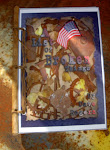

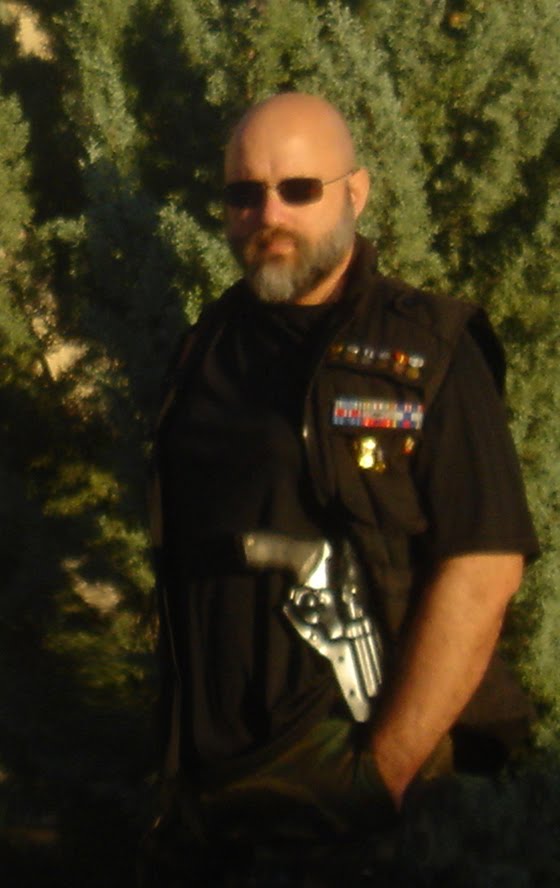
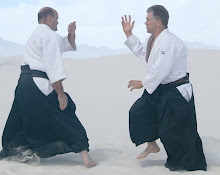







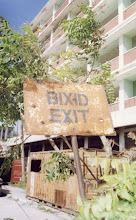
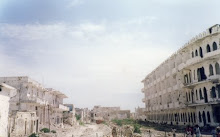


No comments:
Post a Comment